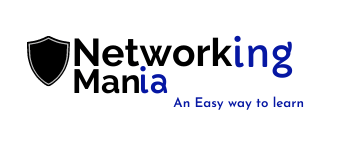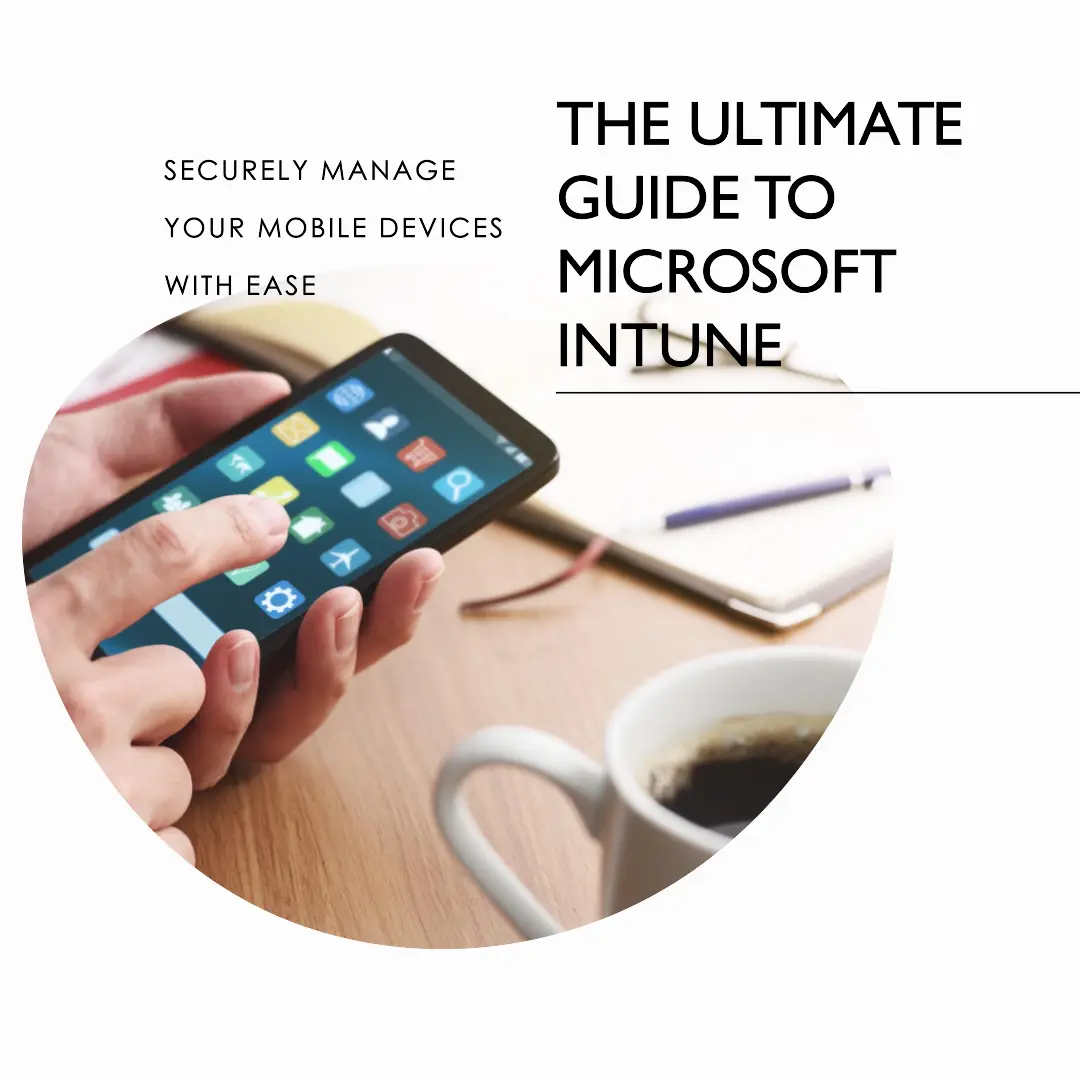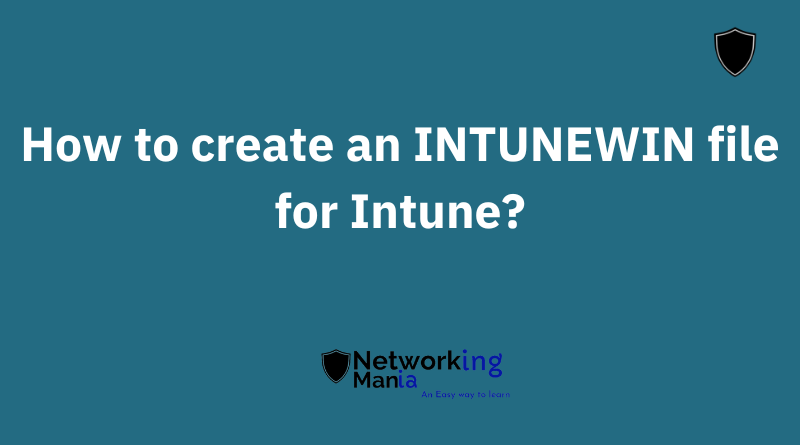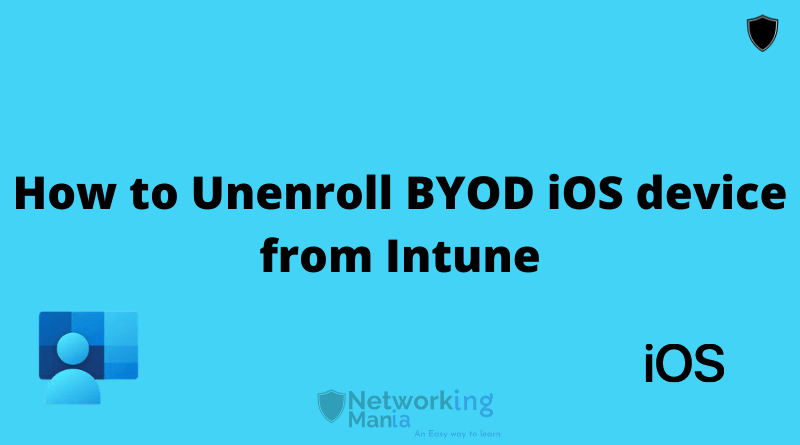Microsoft Intune provides robust data security measures on both managed and unmanaged devices through settings like password requirements, security configurations, and certificate deployment. Furthermore, its integration with mobile threat defense services enhances overall security by scanning and detecting threats on enrolled devices.
Simplifying access is another strength of Intune. From Windows Hello for Business to VPN policies for remote access, Wi-Fi policies for network connection, and single sign-on capabilities – accessing resources has never been easier.
With centralized control over user identities and support for hybrid work environments, Microsoft Intune empowers organizations to securely manage their resources in today’s mobile-driven world.
Whether you’re an admin or an endpoint manager, this cloud-based service has got you covered. With its intuitive interface and seamless integration with other Microsoft products, managing mobile devices, PCs, and applications, including managed apps and Windows Autopilot, has never been easier for admins.
Understanding the Benefits of Microsoft Intune
Enabling remote management and troubleshooting of managed apps on Windows devices is one of the key benefits of Microsoft Intune. With this powerful tool, IT administrators can easily oversee and resolve issues with devices on the network from a centralized location, without the need for physical access. This includes managing and troubleshooting mobile apps on Windows devices as well.
Another advantage offered by Microsoft Intune is its ability to enhance productivity by ensuring secure access to corporate resources on Windows devices. By implementing Intune, organizations can use the admin center to manage apps and establish robust security measures to protect sensitive data while allowing employees to seamlessly access necessary resources from their devices.
In addition to boosting productivity, Microsoft Intune also helps reduce IT costs through streamlined device management processes. This mobile platform simplifies the management of various devices across different platforms such as Windows, iOS, and Android. Administrators can efficiently handle updates, configurations, and policies for all supported platforms from a single interface, benefiting both apps and mobile users.
Microsoft Intune’s versatility extends beyond platform support, as it offers a wide range of features to manage apps on Windows devices. Whether you need to control applications on a mobile device or streamline app management through the admin center, Intune has you covered.
- Windows Intune enables simple deployment and management of apps, ensuring employees have the necessary tools at their fingertips. This is a key feature of Microsoft Enterprise Mobility, which also includes Microsoft Teams.
- It enables comprehensive mobile device management (MDM) through Windows Intune, giving administrators control over device settings and security measures for intune apps. This ensures the secure management of information.
- The Intune Admin Center facilitates mobile application management (MAM) for Windows, allowing organizations to secure corporate data within specific apps on personal devices.
- The Intune Admin Center provides conditional access policies for Windows devices, ensuring that only authorized users with compliant devices can access company resources and apps through the Intune app.
By leveraging these benefits, businesses can achieve greater efficiency in managing their devices while maintaining a high level of security. Microsoft Intune stands as an essential solution for organizations seeking effective device management across multiple platforms, including apps and information. Intune allows businesses to efficiently manage their devices and provide secure access to Wi-Fi networks for users.
Remember: The use of Microsoft Intune brings several advantages:
- Enables remote device management and troubleshooting
- Enhances productivity by ensuring secure resource access
- Reduces IT costs through streamlined device management processes
Key Features of Microsoft Intune
Microsoft Intune offers a range of powerful features that help organizations manage and secure their devices, applications, and data. Let’s take a closer look at some of the key features for managing apps, users, and information.
Mobile Device Management (MDM) capabilities for enforcing security policies
With Microsoft Intune, businesses can easily enforce security policies on mobile devices and apps. This ensures that all users and organizations accessing company resources have the necessary information and meet the required security standards. IT administrators can set up password requirements, device encryption, and remote wipe capabilities to protect sensitive data.
Application Management to control app distribution and updates
Intune enables organizations to centrally manage the distribution and updates of applications, providing IT teams with the ability to deploy business-critical apps directly to users’ devices. This ensures that the apps are always up-to-date with the latest versions, streamlining app management processes and boosting productivity. With Intune, organizations can easily control app information across different devices.
Conditional Access to ensure only authorized users can access company data
To maintain a high level of security, Microsoft Intune provides conditional access capabilities for apps. This means that only authorized users with compliant devices can access corporate data and resources through apps. By implementing conditional access policies for apps, organizations can prevent unauthorized access and safeguard sensitive information.
Endpoint Protection to safeguard against malware and unauthorized access
Intune’s endpoint protection feature helps defend apps against malware threats and unauthorized access attempts by users. It includes real-time scanning for malicious software, as well as proactive measures such as firewall configuration and web protection to safeguard user information. These measures strengthen overall device security within an organization.
Common Use Cases for Microsoft Intune
Bring Your Own Device (BYOD) scenarios in the workplace
- Employees can use their personal devices, such as smartphones or tablets, to access work-related apps through the Intune Admin Center. This allows for easy organization and access to information.
- Microsoft Intune allows companies to securely manage and control these personal devices, ensuring data protection, compliance, and organization of apps and information.
Device Management
Enroll your devices in Intune for easy management and customization of features based on your needs. During the enrollment process, Intune allows you to configure policies that will define settings and provide security for your devices. This includes setting up security settings, password requirements, and deploying certificates.
Additionally, Intune can be used for mobile application management (MAM) in bring-your-own-device (BYOD) scenarios, allowing you to manage and secure personal devices accessing organization resources.
By enrolling in Intune, you gain the ability to centrally manage all your devices and apply consistent security measures across them. This ensures that your organization’s data remains protected on both managed and unmanaged devices. With features like mobile threat defense services scanning for threats, conditional access control, and simplified access through Windows Hello for Business or VPN/Wi-Fi policies, you can confidently enable remote work while keeping data secure.
Remote workforce management for distributed teams or field workers
- With the increasing trend of remote work, Microsoft Intune provides a solution for managing and securing company-owned devices used by employees working from different locations. This app helps in the organization and security of information.
- IT administrators can remotely configure, monitor, and update apps on devices to ensure productivity and security.
Securely accessing corporate resources from personal devices outside the office
- Microsoft Intune enables employees to securely access corporate resources like email, documents, and internal applications from their personal devices using apps.
- This allows employees to stay connected and productive while on the go with the help of apps, without compromising data security.
Managing company-owned devices across different locations
- Whether it’s a multinational organization or a company with multiple branches, Microsoft Intune simplifies device management across various geographical locations.
- IT administrators can deploy applications, enforce policies, and track device inventory from a centralized console.
Exploring the Capabilities of Microsoft Intune
Enrolling devices into the management system for centralized control is a key feature of Microsoft Intune. With this functionality, organizations can easily manage and monitor their mobile devices from a single platform. By enrolling devices, companies gain full control over access and can ensure that all devices adhere to company policies and security standards.
Configuring device settings and applying security policies remotely is another powerful capability offered by Microsoft Intune. Administrators can conveniently customize settings such as password requirements, VPN configurations, and email access permissions across all enrolled devices. This ensures that devices are properly configured to meet organizational needs while maintaining a secure environment.
Troubleshooting issues through remote assistance features is made possible with Microsoft Intune. IT teams can remotely diagnose and resolve device-related problems without requiring physical access to the device or disrupting the user’s workflow. This saves time and resources while ensuring efficient support for users.
Distributing apps and managing updates across multiple platforms is simplified with Microsoft Intune’s managed apps feature. Organizations can seamlessly deploy applications to enrolled devices, ensuring that employees have access to the necessary tools for their work. Updates can be centrally managed, guaranteeing that all devices are up-to-date with the latest software versions.
Microsoft Intune integrates seamlessly with other Microsoft products such as Azure AD (Active Directory) , M365 Defender, and Microsoft Teams. This integration allows for enhanced control access capabilities, enabling administrators to set conditional access policies based on various criteria like user location or device compliance status. By leveraging these integrations, organizations can further strengthen their overall security posture.
How Microsoft Intune Enhances Security and Compliance
Microsoft Intune plays a crucial role in enhancing security and compliance for organizations. By leveraging its robust features, businesses can protect their sensitive data, maintain regulatory requirements, and proactively detect potential threats. Let’s explore how Microsoft Intune achieves these objectives:
- Supports encryption of sensitive data on managed devices: With Microsoft Intune, organizations can ensure that sensitive data stored on managed devices remains protected. By employing encryption techniques, it safeguards information from unauthorized access or breaches.
- Maintains compliance with industry regulations through policy enforcement: Microsoft Intune enables businesses to enforce protection policies that align with industry regulations. This ensures that data handling practices adhere to specific standards such as HIPAA or GDPR.
- Detects potential security threats with proactive monitoring: Leveraging the power of Microsoft Defender, Intune continuously monitors managed devices for any signs of security vulnerabilities or malicious activities. This proactive approach helps identify and mitigate potential risks promptly.
- Applies patches and updates to ensure systems are protected from vulnerabilities: To enhance security further, Microsoft Intune automatically applies patches and updates to managed devices. By doing so, it ensures that systems stay up-to-date with the latest security fixes, protecting them from known vulnerabilities.
- Implements app protection policies for enhanced security: With app protection policies in place, businesses can add an extra layer of security to their applications. These policies control how apps interact with corporate data and help prevent unauthorized access or leakage.
- Facilitates multi-factor authentication for added protection: Microsoft Intune supports multi-factor authentication (MFA), which adds an additional layer of security during user login processes. MFA reduces the risk of unauthorized access by requiring users to provide multiple forms of verification before accessing company resources.
Conclusion
In conclusion, Microsoft Intune offers a wide range of benefits and features that make it an essential tool in modern business environments. With its capabilities for device management, application deployment, and data protection, Intune provides businesses with the necessary tools to streamline operations and enhance productivity.
By utilizing Microsoft Intune, organizations can effectively manage their devices across various platforms, ensuring seamless integration and compatibility. The key features of Intune enable businesses to remotely control and secure their devices, enforce compliance policies, and distribute applications efficiently.
Moreover, Microsoft Intune caters to common use cases such as enabling remote work, managing BYOD (Bring Your Own Device) policies and simplifying software distribution. It empowers businesses to adapt to the evolving digital landscape while maintaining security standards.
One of the significant advantages of Microsoft Intune is its ability to enhance security and compliance within an organization. By implementing robust security measures like conditional access policies and encryption protocols, Intune helps protect sensitive data from unauthorized access or breaches.
To fully leverage the potential of Microsoft Intune in your business environment, consider exploring its vast capabilities in device management, application deployment, and data protection. Embracing this technology can lead to improved efficiency, reduced IT costs, enhanced security measures, and increased employee productivity.
Take advantage of what Microsoft Intune has to offer today by integrating it into your business infrastructure. Stay ahead of the competition by harnessing the power of this versatile tool.
FAQs
1. Can I use Microsoft Intune on multiple platforms?
Yes! Microsoft Intune supports a variety of platforms including Windows devices (PCs/laptops), macOS computers, Android devices (phones/tablets), iOS devices (iPhones/iPads), as well as some IoT (Internet of Things) devices.
2. How does Microsoft Intune ensure data protection?
Microsoft Intune employs various security measures such as encryption protocols for data at rest and in transit, conditional access policies to control device access, and the ability to remotely wipe data from lost or stolen devices.
3. Can Microsoft Intune help with managing employee-owned devices?
Absolutely! Microsoft Intune enables businesses to implement BYOD (Bring Your Own Device) policies by providing secure access to corporate resources while maintaining separation between personal and work-related data on employee-owned devices.
4. Does Microsoft Intune integrate with other Microsoft products?
Yes, Microsoft Intune integrates seamlessly with other Microsoft products such as Azure Active Directory for user management and authentication, as well as Office 365 for email and productivity applications.
5. Is it possible to automate application deployment using Microsoft Intune?
Certainly! With its application management capabilities, you can easily deploy both in-house developed applications and third-party apps across your organization’s devices, saving time and effort.








